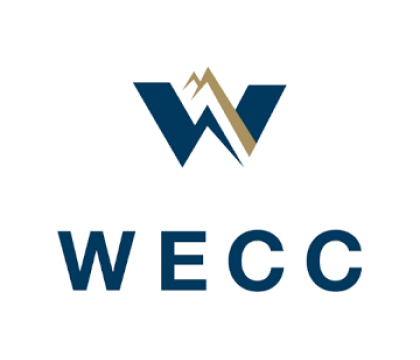2022 Shultz Energy Fellowships: Western Electricity Coordinating Council
Regional-, state-, and city-level efforts are essential in our fight against climate change, especially in the field of energy. Stanford University is committed to helping by integrating its students into energy and climate ecosystems in the West through the Shultz Energy Fellowships program, an energy-related summer fellowship program for undergraduate and graduate students.
Named in honor of former Secretary of State George P. Shultz, one of the most widely admired American public servants of the past half-century, the program offers a suite of paid, energy-related public service fellowships for Stanford students in California, Colorado, Utah, and Hawaii during the summer.
The fellowships run from Monday, June 20, 2022 to Friday, August 26, 2022. You will be one of two Stanford graduate students placed at WECC located in Salt Lake City, Utah.
Western Electricity Coordinating Council
The Western Electricity Coordinating Council (WECC) promotes Bulk Electric System reliability in the Western Interconnection. WECC is the regional entity responsible for compliance monitoring and enforcement. In addition, WECC provides an environment for the development of reliability standards and the coordination of the operating and planning activities of its members as set forth in the WECC Bylaws.
WECC is geographically the largest and most diverse of the eight regional entities with delegated authority from the North American Electric Reliability Corporation (NERC) and Federal Energy Regulatory Commission (FERC). The WECC region extends from Canada to Mexico and includes the provinces of Alberta and British Columbia, the northern portion of Baja California, Mexico, and all or portions of the 14 Western states between.
The mission of the Western Electricity Coordinating Council is to promote and foster a reliable and efficient Bulk Electric System. WECC’s vision is to lead its stakeholders to achieve optimal system reliability, be the premier source of unbiased information, and serve as the trusted thought leader for the Western Interconnection.
For more information visit the WECC homepage.
2022 Fellowship Project
The summer 2022 Shultz Energy Fellowship project will be hosted in the Program Analysis and Administration team. This project will entail development of methods to identify and track patterns in common root causes, operational issues, and defective internal controls contributing to reliability and security risks. These methods will be used as input to outreach and engagement activities, the Regional Risk Assessment, ERO Enterprise Compliance Monitoring and Enforcement Program (CMEP) IP, and Compliance Oversight Plans. Inputs include enforcement dispositions, mitigation plans, monitoring results (e.g. RSAWs and audit reports), registration surveys, etc. Possible study techniques will include statistical analysis, natural-language processing, and data mining.
The purpose of this project is to improve WECC's Compliance Monitoring and Enforcement Program (CMEP) by increasing strategic use of data. WECC has several processes it plans to use and execute the CMEP. Through these processes WECC collects and generates a great deal of data. The fellows will develop and conduct analyses of this disparate data to identify patterns and trends in reliability and security risks. Details will depend on the fellows’ skillsets and interests, but as one example a fellow might develop an analysis of compliance violation filings that identifies a common contributing factor. WECC would share this finding with utilities in the West to help prevent future issues. WECC would also look to adapt and reuse methods from the analysis to continue to find common factors in other future filings. The goal is to help both WECC and utilities make continuous, long-term improvements.
Potential Mentors
- Kim Israelsson, Manager, Oversight Analysis and Program Services
- Ben Aldous, Senior Compliance Analyst, Oversight Analysis and Program Services
2021 WECC Fellows
- Kaitlin Highstreet MS '22, Civil Engineering, Sustainable Design & Construction
- Paul Rudnicki, 4th year PhD Candidate in Chemical Engineering in the Qin Lab
- Learn more about Kaitlin and Paul's experience at WECC:
- View Kaitlin and Paul's final project.
The ideal student candidates will have the following skills and knowledge:
Skills:
- Demonstrated research and analytical skills, including use of analytical software(s).
- Ability to think creatively, critically and broadly about issues affecting electric reliability.
- Strong written and verbal communication skills.
- Experience using Microsoft Word, Excel, and PowerPoint.
- Ability to work independently as a member of a research team, demonstrate initiative and seek guidance when necessary.
- Ability to collaborate with stakeholders outside of their immediate work group.
Knowledge:
- Interest in engineering or related fields.
- Awareness of issues affecting electricity reliability.
- Interest in applying knowledge to understanding and mitigating reliability risks the Western Interconnection.
All Shultz fellows must be enrolled in the spring quarter before their fellowship.
All Shultz fellows must take a one-unit spring workshop course, 'Energy Policy in California and the West' taught by Professor Bruce Cain that will provide an in-depth analysis of the role of California state agencies, the Western Interstate Energy Board, and the Western Electricity Coordinating Council in driving energy policy development, technology innovation, and market structures. Course number is CEE 263G / POLISCI 73 / PUBLPOL 73 / ENERGY 73. Schedule: Wednesdays from 9:45 am - 10:45 am (Shriram Ctr BioChemE 108).
Please note that this opportunity is for graduate students. Interested undergraduates can apply via SIG.
